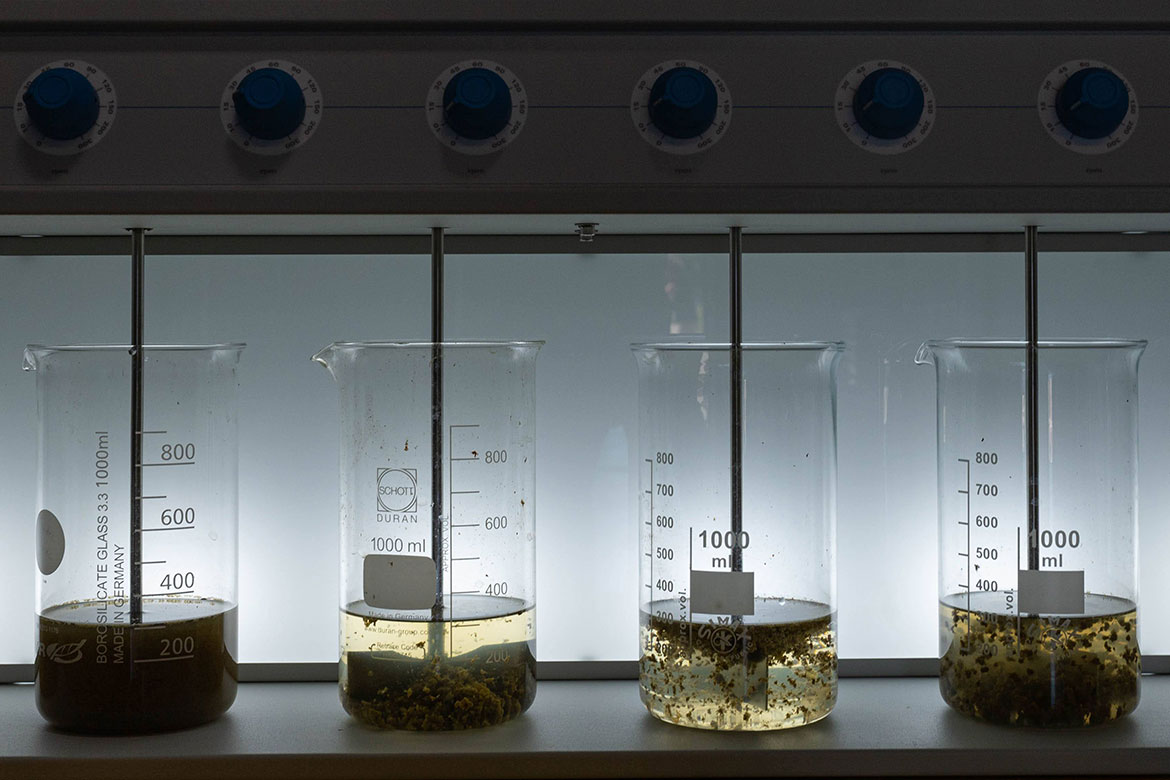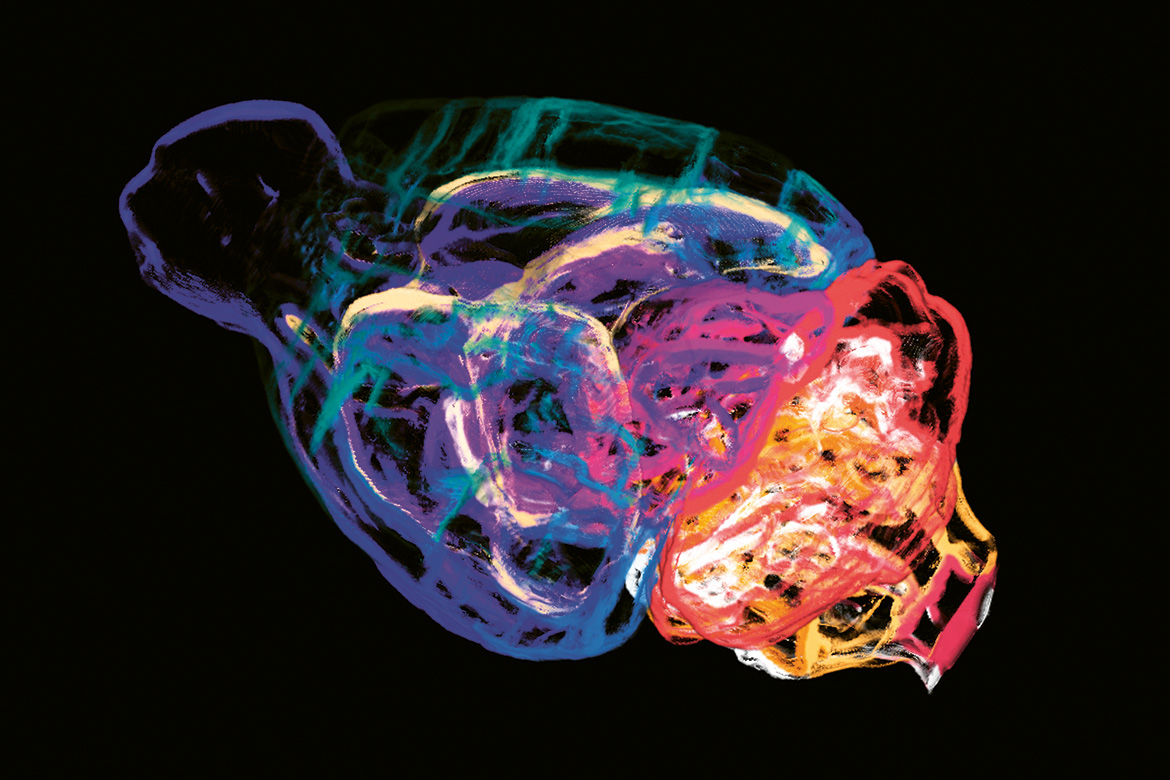WASTEWATER RESEARCH
Cleaning wastewater sustainably
Researchers at Eawag have discovered a simple, biological method of separating water from its pollutants.

Different conditioning agents used by Eawag in Dübendorf can remove pollutants from wastewater. | Image: zVg
“One third of the urban population across the world has no connection to a sewage system. This is especially the case in low-income countries”, says Linda Strande of Eawag, the Swiss Federal Institute of Aquatic Science and Technology. This is why there is an urgent need for cheap methods for purifying so-called ‘black water’ that has been polluted with faeces, toilet paper and much more besides. Methods of this kind also need to have a small ecological footprint.
One option is to add a substance to dirt particles that can bind them together to create ‘flakes’ that then sink downward. To this end, Strande’s team has tested several so-called ‘conditioning agents’ that could be produced locally from biological sources – e.g., chitin, which can be obtained from waste products such as fish scales. To their surprise, this worked just as well as synthetic substances. They are now going to use sensors to help measure the degree of pollution so as to calculate the correct amount of conditioning agent to be added.




